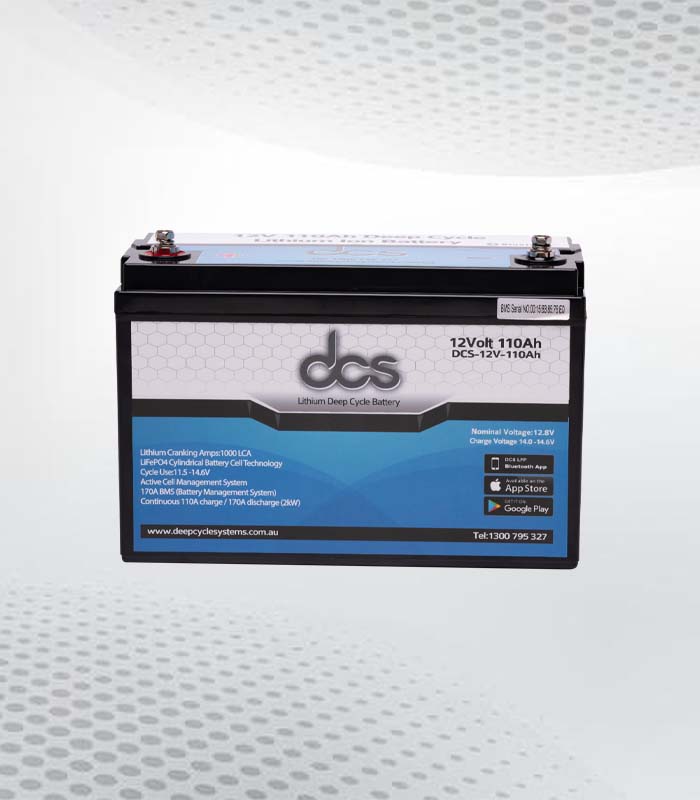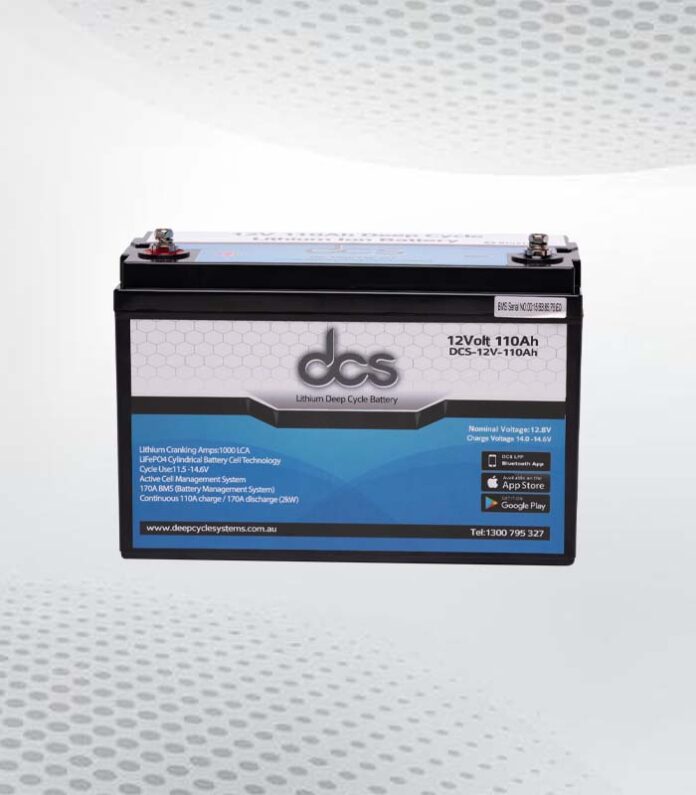Lithium-ion batteries have become a crucial part of our daily lives, powering everything from smartphones and laptops to electric vehicles. But how much do you know about this technology? This blog post will delve into everything you need to know about lithium ion battery technology, from its history and composition to its advantages and limitations. Whether you’re a tech enthusiast or simply curious about the batteries that keep your devices running, this post will provide a comprehensive overview of this powerful and widely used energy storage solution.
Understanding The Basics Of Lithium-Ion Batteries
Combined with infectious energy, lithium-ion batteries – often casually abbreviated to the snappy ‘Li-ion’ – act as the heart, the pumping dynamos, that invigorate and fuel an impressive array of our go-to portable gadgets and electric vehicles alike.
 Yet, what is the magic formula that makes them work so efficiently? The unsung hero of this technological marvel is none other than the lithium-ion itself. When the battery begins to discharge, these mighty microscopic ions are roused to action, embarking on a journey from the negative electrode and progressing to the positive one.
Yet, what is the magic formula that makes them work so efficiently? The unsung hero of this technological marvel is none other than the lithium-ion itself. When the battery begins to discharge, these mighty microscopic ions are roused to action, embarking on a journey from the negative electrode and progressing to the positive one.
It doesn’t end there. Upon charging, they return to their origin at the negative electrode. This perpetual round trip, this tireless dance of the lithium ions – moving back and forth – is the secret behind lithium-ion batteries’ formidable high energy density.
When peeled down to its bare bones, what might seem a complicated and detailed process is elegantly simple. Next time you switch on your smartphone, you’ll be unleashing this remarkable journey of ions, this minute adventure playing out in the palm of your hand!
The Composition And Working Of Lithium-Ion Batteries
Let’s dissect a lithium-ion battery metaphorically, of course! At its core, a lithium-ion battery consists of three essential components: a positive electrode (cathode), a negative electrode (anode), and an electrolyte. The cathode is generally composed of lithium cobalt oxide, while the anode is usually carbon graphite.
The electrolyte, bridging the gap between the two electrodes, is a lithium salt in an organic solvent. This is the stage set for the energy-filled performance of the lithium ions. Now, let’s peek into the action. When the battery discharges, lithium ions spring from the anode, journey through the electrolyte, and are eagerly embraced by the cathode. This travel of ions generates a flow of electrons, which provide electrical power to your device.
But the show doesn’t end here! When you plug in your device to recharge, the lithium ions waltz back to the anode, preparing for their next power-packed performance. So, every time you use your device, picture this energy-filled dance of ions happening right under your fingertips!
Different Types Of Lithium-Ion Batteries
Embarking on the captivating journey of understanding lithium-ion batteries, a diverse collection of variations welcomes you, each with distinct features and uses.
- The Lithium Cobalt Oxide battery (LiCoO2), the first you might come across, may seem familiar if you frequently use personal electronics; they are known for their high energy density and reliable performance.
- In the lineup, we also have Lithium Manganese Oxide batteries (LiMn2O4), particularly favoured for their high thermal stability. This trait makes them an optimal choice for power tools and electric vehicles.
- In the meantime, the durability and longevity of Lithium Iron Phosphate batteries (LiFePO4) are praiseworthy, making them suited for demanding applications.
- Pay attention to the Lithium Nickel Manganese Cobalt Oxide batteries (LiNiMnCoO2), skilfully balancing power, safety, and lifespan, thus finding their niche in electric vehicles.
- Finally, the Lithium Nickel Cobalt Aluminium Oxide (LiNiCoAlO2) batteries join the assembly, acclaimed for their high energy density, a boon for power-intensive applications. This vibrant range of choices under the lithium-ion category each brings its distinctive capabilities, thus promising a battery variant for every specific requirement.
Advantages Of Using A Lithium Ion Battery Pack
Stepping into the arena of lithium ion battery packs, we’re met with a chorus of benefits singing their praises. So why are these battery packs so popular? Well, for starters, they boast an impressive energy density, which means more power packed into a smaller space – imagine fitting a whole symphony orchestra into a small jazz club! Lithium-ion battery packs are ideal for portable devices and electric vehicles.
Dive a little deeper; they are also renowned for their low self-discharge rates, holding their charge far longer than other batteries. Picture this: you’re preparing for a marathon, but instead of getting exhausted quickly, you can keep running at your peak performance for a significantly longer duration. Now that’s endurance!
Another feather in their cap is their need for memory effect. While some batteries can suffer from this frustrating phenomenon, which can decrease their capacity over time, lithium-ion batteries are immune, meaning they’ll deliver top-notch performance throughout their lifespan.
Let’s not forget that these packs also contain a battery management system (BMS), acting like an orchestra conductor, ensuring each cell performs harmoniously, enhancing overall efficiency and safety. Taking all of this into account, it’s clear why lithium-ion battery packs are the rock stars of the battery world, offering a blend of power, endurance, longevity and safety that’s hard to beat.
Applications Of Lithium-Ion Battery Technology
The pervasive influence of lithium-ion batteries in our daily lives is profoundly remarkable. Their seemingly unstoppable journey across the globe has made them an integral part of various devices, bringing them to life. As a digital nomad, your exploratory pursuits rely heavily on the portable powerhouse – your laptop – which gets its strength from these batteries. Your smartphone, your unwavering aid, ensuring seamless connectivity, completely banks on them to function efficiently.
Yet, lithium-ion batteries aren’t limited to merely handheld electronics. They act as the driving force behind the accelerating pace of electric vehicles, providing a sustainable solution to the long-standing issue of fossil fuel dependency. Moreover, they also play an instrumental role in renewable energy storage systems, promising a brighter, greener future. Their application extends to intricate medical equipment, thus supporting the healthcare sector’s efforts.
Beyond that, lithium-ion batteries have ventured into uncharted areas, making a noteworthy entrance into the futuristic field of aerospace technology. Their extensive usage scope assures their significant standing in modern technology discussions. With each use, these lithium-ion batteries step closer to sculpting a future that is ecologically sound and synonymous with heightened efficiency.
A Glimpse Into Lithium-Ion Battery Packs
Embark on an expedition as we delve into the heart of a lithium-ion battery pack, a compact energy powerhouse. Imagine, if you will, a bustling city where each building is an individual lithium-ion cell.
Much like a metropolis meticulously planned and constructed to serve its inhabitants, these packs are custom-designed to meet the specific voltage, capacity, and power density requirements of the product they power. But what makes a battery pack tick? Nestled within this mini energy city is the pivotal battery management system (BMS), acting as the mayor, maintaining an eagle-eyed watch over each cell’s performance. This vigilant system bolsters the pack’s efficiency and safeguards it, ensuring each individual cell’s harmonious and safe functioning.
Each lithium-ion cell works in unison in this energy-dense city, powering our world with remarkable efficiency and safety. So next time you marvel at your smartphone’s battery life or enjoy a smooth ride in your electric car, remember the bustling city humming away within your lithium-ion battery pack.
Cost-Effective Lithium-Ion Battery Technology
Let’s open the door to the world of the economics of lithium-ion batteries, a fascinating narrative of continuous improvement and innovation. The lithium-ion battery has come a long way since its inception, riding the wave of technological advancements and economies of scale, thereby becoming significantly more cost-effective.
Picture this – it’s much like a bottle of fine wine that improves with age and magically becomes more affordable over time! The real deal, however, lies in its long-term value. The initial cost is higher compared to traditional batteries. Still, their high energy density, longer lifespan and minimal maintenance requirements make them a much more cost-efficient solution in the long run.
Imagine investing in a superstar footballer for your team – you may pay a hefty sum upfront, but their stellar performance justifies the cost over time. Yet, the journey doesn’t end here. Scientists and manufacturers across the globe are tirelessly working to further reduce costs without compromising performance, all in a bid to make this powerful technology accessible to everyone. So, the next time you purchase a lithium-ion battery, remember that you are not just buying a product but an efficient and affordable solution designed for the future.
The Future Of Lithium-Ion Batteries
Step into the thrilling arena of what’s to come in lithium-ion battery technology. As the global drive towards electrification and sustainable energy solutions accelerates, the demand for advanced lithium-ion batteries is growing at an unprecedented rate. The horizon is awash with tantalising possibilities.
Groundbreaking technologies such as solid-state and lithium-air batteries are poised to transform the energy landscape. Imagine an even higher energy density and enhanced safety; it is a compelling vision. Then there’s the relentless pursuit to extend the lifecycle and slash the charging time of these energy powerhouses.
Every advancement in lithium-ion technology is a step towards a more sustainable and efficient future. So, as we glide smoothly in our electric vehicles or power up our digital lives, let’s spare a thought for the ceaseless innovation humming away in the labs, tirelessly shaping the future of lithium-ion batteries. And remember, the batteries of tomorrow are being conceived today. Watch this space; the best is yet to come!
FAQs
“Do lithium-ion batteries have a ‘memory effect’?”
No, they don’t. Unlike some other types of batteries, lithium-ion batteries are immune to the memory effect and deliver top performance throughout their lifespan.
“How long do lithium-ion batteries last?”
This depends on how frequently you use and charge the device. But on average, lithium-ion batteries last between two to three years or 300 to 500 charge cycles, whichever happens first.
“What is the energy density of lithium-ion batteries?”
Lithium-ion batteries have a high energy density. This means they can store more energy than other types of batteries of the same size, making them ideal for devices that need a lot of power, like electric cars.
“Are lithium-ion batteries recyclable?”
Yes, they are. However, due to their complex chemistry, they should be recycled at a designated recycling facility.
“Can lithium-ion batteries explode?”
Although rare, lithium-ion batteries can overheat and potentially explode if overcharged or short-circuited. Always handle them with care and use recommended chargers.
Conclusion
Demystifying the nuances of lithium-ion batteries isn’t solely for tech fans; it’s beneficial for all of us who have our lives seamlessly intertwined with devices powered by this groundbreaking technology. Acquainting ourselves with the remarkable workings of lithium-ion batteries, their diverse applications, and their care requirements empowers us to exploit their potential fully, enhancing our digital experiences. Further, as informed consumers, our feedback and suggestions might spark innovations in this dynamic field.
|
Other Good Articles to Read
|
| Niche Blogs Connect |
| Blogs 97 |
| Blog Stitution |
| Blogs Unplugged |
| Blogs Cotch Rouge |
| Blog Sintonias |
| Blog Zilla |
| Consumer Forums |
| Finance Forums |
| G Blogs |
| Too Blog |

